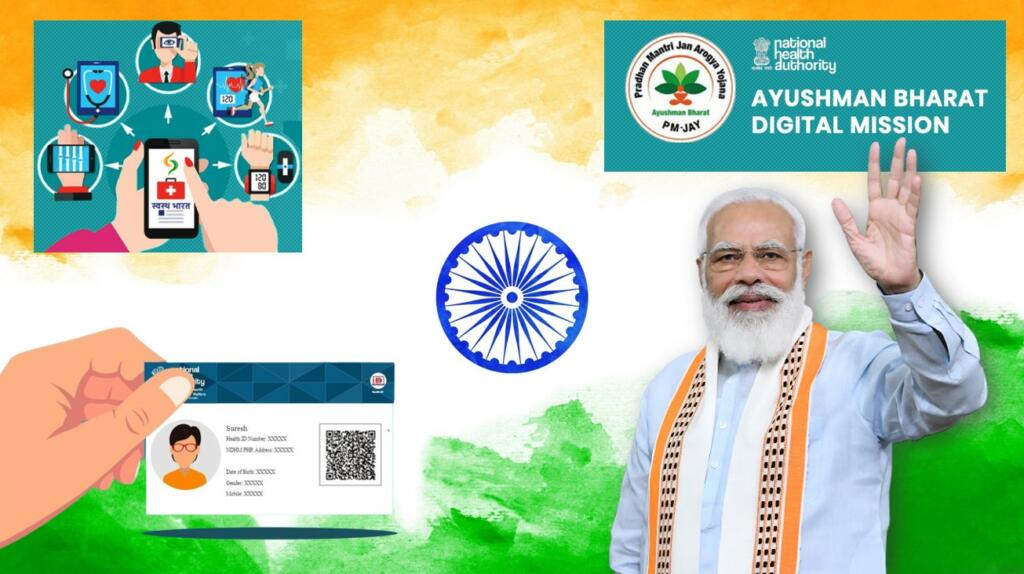In a step that has the potential to revolutionize India’s public healthcare system, the Modi government has approved a nationwide roll-out of the Ayushman Bharat Digital Mission (ABDM) with a budget of 1,600 crore rupees.
National Health Authority (NHA), an agency under the Ministry of Health and Family Welfare (MoHFW), led by R S Sharma (former TRAI chairman and one of the Modi government’s favourite bureaucrats), is the implementation agency for ABDM. The cabinet committee on economic affairs (CCEA) cleared the national roll-out of the mission.
“The Ayushman Bharat Digital Mission of the Ministry of health and family welfare will be rolled out across the country with a budget of ₹1600 crore for five years,” said the cabinet statement.
“Under this, citizens will be able to create their ABHA (Ayushman Bharat Health Account) numbers, to which their digital health records can be linked. This will enable creation of longitudinal health records for individuals across various healthcare providers, and improve clinical decision making by healthcare providers,” the statement read.
आयुष्मान भारत डिजिटल मिशन के National Roll-out हेतु आगामी 5 वर्षों के लिए ₹1600 करोड़ की मंज़ूरी देने हेतु PM @NarendraModi जी का धन्यवाद।
अब भारत के नागरिक ABHA नंबर के जरिए अपने हेल्थ रिकॉर्ड एक जगह रख पायंगे। ABHA नंबर त्वरित तथा quality हेल्थकेयर के लिए उपयोगी साबित होगा। pic.twitter.com/sxqTA4LG4X
— Dr Mansukh Mandaviya (मोदी का परिवार) (@mansukhmandviya) February 26, 2022
The Digital Health Mission has the power to revolutionize the healthcare infrastructure of the country as it will bring the cost of healthcare at least 10 times lower and make healthcare services accessible to everyone.
The key components of PM-DHM include a health ID for every citizen that will also work as their health account, to which personal health records can be linked and viewed with the help of a mobile application. Healthcare Professionals Registry (HPR) and Healthcare Facilities Registries (HFR) will act as a repository of all healthcare providers across both modern and traditional systems of medicine.
Also Read: Modi govt’s plan to make Unique Health ID for patients will revolutionise healthcare in India
These initiatives will make the life of doctors and their patients easier, by weeding out thousands of repetitive medical tests and check-ups and by promoting telemedicine. The initiatives will also reduce the cost of healthcare and would give the country a healthcare infrastructure in the next few years that is unparalleled in the world.
Moreover, it would make Indian companies in the field of healthcare globally competitive – thus the Google of healthcare may come from India. Also, it would promote medical tourism at an unprecedented rate, given the reputation of Indian doctors around the world.
During the Coronavirus pandemic, India proved its mettle in utilizing digital technology for Covid care (through Aarogya Setu) and Vaccination (CoWin). India’s vaccination program is drawing laurels from countries that genuinely want to rid themselves of Covid-19. And such countries realize that the CoWin system can be a formidable tool for them to counter the difficulties imposed by the pandemic.
So, while the first-world countries sulk in their corners while witnessing India’s tremendous success, at least 50 countries from across Central Asia, Latin America, and Africa have expressed their interest in gaining technological insight from India, specifically with the CoWin portal.
India had decided in June itself to share the open-source of CoWin with 50 countries showing interest in the platform as India’s tremendous pace of vaccination gets the world gasping with adulation.
The digital health mission would make globally reputed Indian doctors available to countries around the world. Patients in western countries, where the healthcare cost is among the highest in the world, would rather choose Indian doctors, and this has the potential to bring billions of dollars to India every year.
Western countries have been leaders in physical infrastructure, but when it comes to digital infrastructure, India is emerging as the global leader. The digital infrastructure in India to facilitate banking and finance (IndiaStack), healthcare services (HealthStack) is winning laurels from the people like Bill Gates, Satya Nadella, and Sundar Pichai. India is set to emerge as the global leader in areas such as fintech and health-tech in the next few decades.
